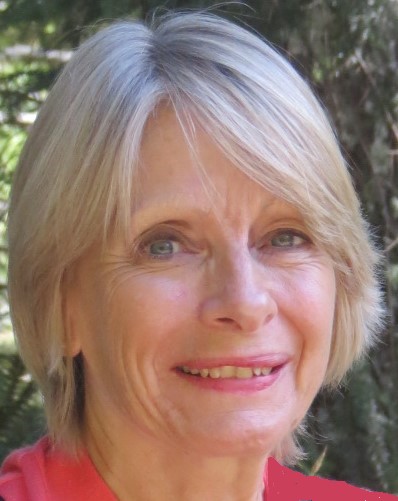Supporting older clients: to maintain good health, in chronic ill health and those living with dementia
Language: English
Country: UK
Date and Time (local): 18 September 2023 – 19H00
Biography:
Lynne Booth, BA(Hons), BRCP, IIR, ART(regd)Hons, FAoR, MFHT.
Lynne discovered Vertical Reflexology Technique (VRT) while working on mobility problems associated with older people. She has subsequently developed and extended this technique to cover all age groups and most conditions. Lynne has run a reflexology clinic at the St Monica Trust, Bristol: a residential care home village with sheltered and full nursing care for older people, for 27 years. For the past 16 years she also worked, as a reflexologist, alongside the medical team of a professional Championship football club. She took part in an iBSc research project with a
London university medical student in 2016 to investigate the potential uses and efficacy of reflexology in a professional football club.
Lynne received recognition from the Institute of Complementary and Natural Medicine (ICNM) for its ‘Outstanding Contribution to Complementary Medicine’ in 2011. Lynne has also received 2 Honorary
Fellowships (AoR and ART) and in 2018 was awarded the prestigious ‘Excellence in Reflexology Innovation’ Award by the Association of Reflexologists. She has also developed VRT Nail-working
treatments and mapped out reflexes on a grid system on the nails. Lynne and VRT tutors regularly run courses internationally and she has undertaken nearly 70 international tours. She has written a
best-selling book, Vertical Reflexology and also Vertical Reflexology for Hands. They are translated into Dutch, Russian, Czech, Portuguese in Brazil, Japanese and Estonian. Lynne and appointed VRT
tutors are engaged in running seminars in the UK and internationally, where her accredited award-winning techniques have been taught to over 10,000 qualified reflexologists
Presentation:
Introduction
The Presentation will address the reflexology techniques and approaches used in supporting older people in sickness and in health. Healthy aging is an important and realistic goal for many people
who can now expect to live, in many cases to 85-90 years at least. I will draw on my experience of working with chronically sick older people for 27 years in a care organisation in the UK in a 250
person residential organisation which includes two dementia units. I discovered Vertical Reflexology Techniques (VRT) while working at the nursing and residential home complex and have adapted
these, and classical reflexology techniques, to work mainly on the hands when working on those living with dementia but they can also be used on the feet of other older clients.
Reflexology is increasingly being used in residential care facilities and among many fit older clients who want to maintain their health throughout retirement. There is no doubt that the reality of the
silver tsunami of older people, i.e. the baby boomers following the Second World War, presents a considerable challenge that must be confronted not just by government but by all of society.
There will be short illustrations of hand reflexology within this presentation that can be applied to many older people with multiple pathologies. Some techniques and discussion will look at
maintenance and presentation techniques for better health.
The presentation will address why hand reflexology is usually the preferred technique for working on the hands of those living with dementia and briefly demonstrate a specialised calming and
therapeutic hand technique, including simple VRT nail-working that can be applied by reflexologists and can be taught to family and carers. Other short hand techniques will be shown from Reflexology
and Movement technique repertoire for hand and foot reflexology sessions. The presentation will cover therapists working in care homes and what they can offer older people and address any contraindications. Advice will be given on how to approach nursing homes with the intention of offering reflexology services. It is important to register that the process of ageing does not always have to be a negative decline,
and that the body still has many resources to implement some regeneration, giving a multi-faceted approach to their nursing care.
Conclusion/Discussion:
Contraindications
Protocols to help give the aging body the correct impetus for regeneration.
Protocols for working with those living with dementia to help them respond positively
Lengths of treatments
Hand or foot preferences
What responses can be expected with the aging body and pain and mobility issues
End of life techniques plus VRT claiming nail-working holds and gentle protocols
Research:
https://boothvrt.com/vrt-aches-pains/ 1997 VRT Pain and Mobility medically observed study
https://boothvrt.com/vrt-hand-reflexology-in-the-workplace-study/ Reflexology in the workplace study
Articles and Research 20 https://boothvrt.com/research-articles/
Queen Mary University London Football and Reflexology Study for 4th year iBSc medical student dissertation 2015-16
